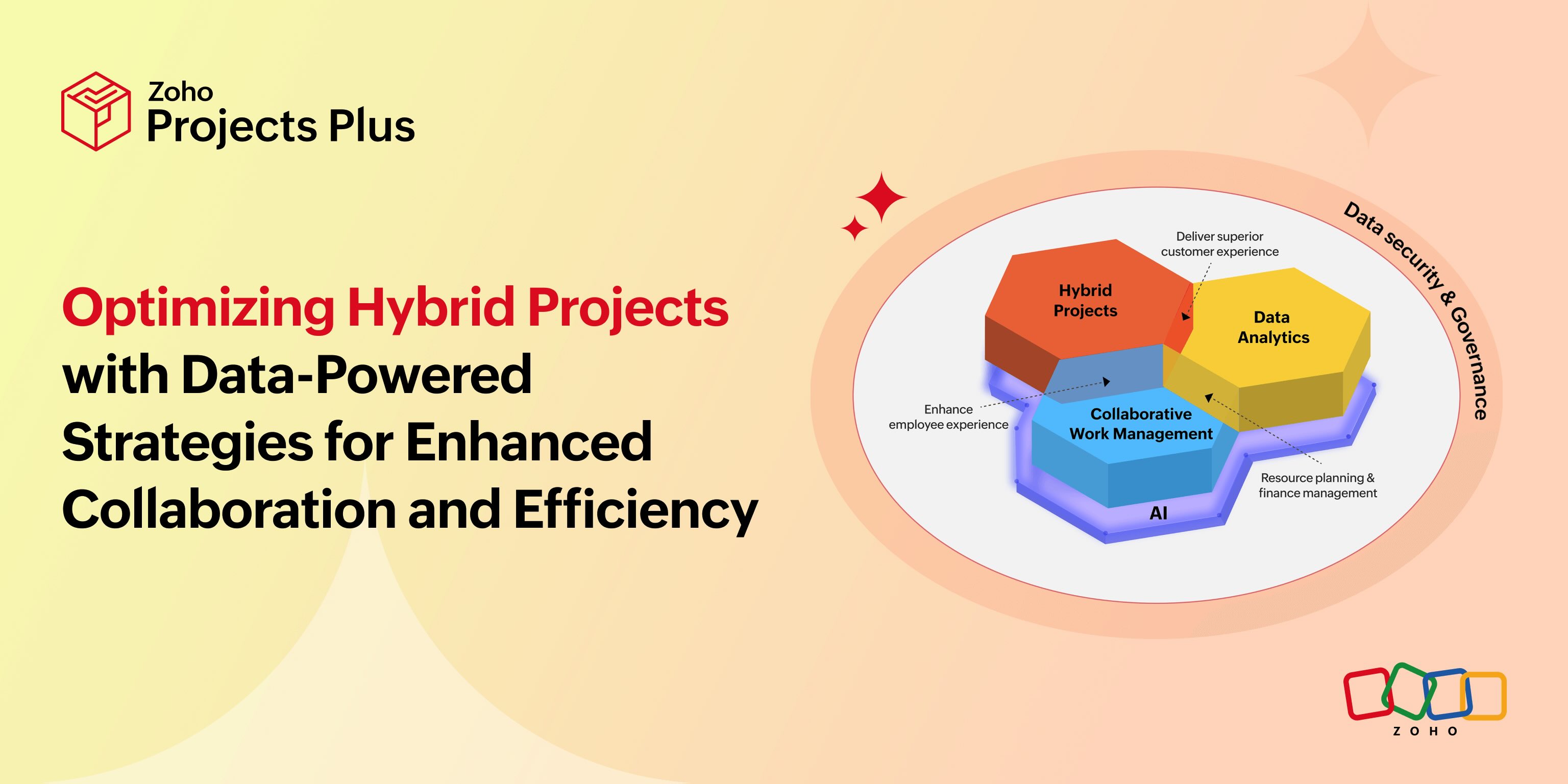- HOME
- Project Management
- How to Adapt and Flourish in the New World of Project Management
How to Adapt and Flourish in the New World of Project Management
- Last Updated : March 28, 2024
- 6.4K Views
- 6 Min Read

Do you wonder how to stay current in your PM role?
Is your industry evolving so quickly that one day you might no longer be required?
With the rise of AI, agile, and empowered teams, are project managers even needed anymore? Maybe, but not for the reasons you might expect.
As we enter a new decade, it’s an excellent time to reflect on how project management has changed and where it is going in the future. Professional project managers need to stay current and adapt to change to thrive. We all want to remain valuable to our organizations and teams. Tips include:
Focus Wisely
You might be expecting to hear about the usual list of topics: big data, IoT, and artificial intelligence. These are undoubtedly happening, but project managers have little influence over them. Instead, I suggest that project managers focus on people skills.
People originate projects, people undertake projects, and people consume the results of these projects. These characteristics are not changing anytime soon. However, what is happening is a massive mobilization of talent and services. These changes will have a profound impact on the way we work and how to retain the best people.
As the saying goes “The future is already here; it’s just not evenly distributed.” We have seen the war for talent driving demand for skilled professionals in places like Silicon Valley, Bangalore, and Beijing. Organizations are now looking further afield for workers and technology is making remote work more accessible. So as project managers, we should be getting familiar with online collaboration tools and how to facilitate geographically dispersed teams.
Choose Your Attitude
Attitudes are changing too. People do not appreciate being treated as interchangeable resources. Instead, they want to be inspired, led and valued, especially younger workers who may not have been through economic downturns with job scarcity.
These new expectations present a problem for traditional organizations with their human resource departments and standardized job roles. The high demand for top talent, growth in online collaboration tools, the gig-economy, and access to online job sites make moving roles easier than ever.
‘Sedimentation’ is a term used to describe organizations where all the best and brightest have moved on, leaving behind those that cannot find other jobs or choose not to. People move because they did not feel valued or lacked inclusion/influence in decision making. Like with ponds, too much sedimentation creates a toxic environment where nothing grows or flourishes.
How to Keep Your Best Team Members
“Employees don’t leave companies; they leave managers” – Don’t be one of those managers!
A Gallup poll1 of more than 1 million workers concluded that the number one reason people left their jobs was a bad boss or immediate supervisor. Also, 75% of workers who voluntarily left their jobs did so because of their manager and not the role itself. Despite how good a job is, people will leave if their relationship with their project manager is unhealthy.
Solutions exist to make people feel valued and reduce sedimentation. Project managers who demonstrate compassion and understanding can use empowerment to create environments where people want to stay, even if the organization is not the best in class.
The PMI 2020 Jobs Report2 explained “Showing empathy is fast emerging as a leadership superpower. Fostering an empathetic culture can lead to stronger collaboration, less stress, fewer conflicts and faster recovery from burnout.” Project managers who create these environments get noticed by executives and are highly valued.
Furthermore, 91% of CEOs believe that empathy is directly related to a company’s financial performance3. So, what does that mean for project managers?
The Magical Es
Exploration, Empowerment, Empathy – they all sound good, but how do we achieve them? Let’s look at some concrete examples for each.
Exploration – keep an open and growth-oriented mindset. Learn about the new tools for team collaboration and managing geographically dispersed teams. You never know, you might be in a meeting where questions arise about this and being able to offer an insightful solution could land you a new opportunity.
In 2010 a team developing software for a large trucking company was also responsible for developing training materials. Ashley, a junior team member, lamented whenever she wanted to learn something she just looked on YouTube. This was before microlearning became an established approach.
However, the team acknowledged short videos would be a great way to teach drivers about the new system. Ashley set up a web portal allowing drivers to access training videos on-demand and also tracked their viewings. Ashley studied the emerging field of microlearning, created the videos and took a much more senior role out of IT in corporate training. Her interest, research and delivery on in a field of interest served her and the organization well.
Empowerment – people are hard-wired to get an endorphin boost from problem-solving. So bring teams problems and challenges, not task-lists. Allowing teams to choose how they work and solve problems is a more empowering and engaging way to work. Team members who have a say in defining their way of working are more committed to their success and happier in their jobs.
Within the bounds of what is acceptable in your organization, empower teams to make as many local decisions as possible. What time should we have stand-up? What tool should we use for prototyping? How are we going to solve the nose-cone problem? Whatever the question, asking the team for a solution brings many benefits:
- By asking the team for an answer, we gain consensus for the proposal. – the team has vetted it internally already.
- We are accessing a broader knowledge of the facts – the team members are closer to the technical detail.
- When consulted people work hard to generate good ideas – it shows we care and value their input. People recognize this and respond.Seeking ideas models desired behaviour – it shows it is good to ask for insights and help.
Empathy – make the time to get to know your team members and take an interest in their wellbeing and aspirations. Truly listen to what they are telling you, and not discussing with you. Empathy is a core building block of emotional intelligence. Only when we demonstrate we understand how others feel, do our messages begin to gain credibility. In other words, project managers are not trusted until they show authentic care for their teams.
I worked on a project where a team member explained he had just received a call from his wife, who was sick. He wanted to go home to see her. I could have just said: “Sure, no problem, go home and see her”. However, because I knew he walked to his nearest train station and took the train to get into the office, I asked if I could drive him home. He was very appreciative, he saved 30 minutes on his journey home, and I was back in the office in under an hour.
It was no big deal to me; the team was very self-sufficient, and I was glad to assist. However, he did not forget that simple gesture, it helped strengthen our work relationship and was repaid many times over.
Future Challenges and Changes
Shifting demographics, work attitudes and technology adoption will transform entire industries. A trifecta of factors are impacting organizations:
- More millennials and Gen Y workers entering the workplace with high expectations for inclusion and influence in how they work,
- Increased acceptance of changing jobs, the rise of the gig-economy and fewer people treating organizations as life-long employers,
- Technology and websites that facilitate remote working, finding new work, and sharing experiences which make changing jobs more tempting than ever.
Savvy project managers will be of great value as organizations grapple with responding to these factors and try to retain the best employees to help them be successful.
While technology trends such as artificial intelligence, IoT and big data will undoubtedly impact business, organizations will become more reliant on retaining and directing collaborative teams to deliver their transformations. Project managers who can understand and navigate the emerging world of work will be more valuable than ever.
To prepare for these changes, project managers should be building their capabilities in new collaboration tools, empowering their teams and developing genuine empathy to increase team member satisfaction and retention. As we move into a new decade, project managers should double-down on what they can control and what makes project teams great – the people and their operating environment.
References:
 Mike
MikeMike is an enthusiastic practitioner with a long history of contributions to the agile and project management community. He helped create the agile approach DSDM in 1994 and has been using agile approaches ever since. He served on the board of the Agile Alliance, the Agile Project Leadership Network (APLN) and remains active in the agile community. Mike is a frequent contributor to PMI standards and co-wrote the agile content for the PMBOK Guide Sixth Edition. He was chair of the author group for the PMI Agile Practice Guide. He also helped create the PMI-ACP Credential and wrote RMC’s PMI-ACP Exam Prep books.





Comments(1)
One of the outstanding items I’ve seen this week. And I like your idea that “make the time to get to know your team members and take an interest in their wellbeing and aspirations. Truly listen to what they are telling you, and not discussing with you. Empathy is a core building block of emotional intelligence. Only when we demonstrate we understand how others feel, do our messages begin to gain credibility. In other words, project managers are not trusted until they show authentic care for their teams.”